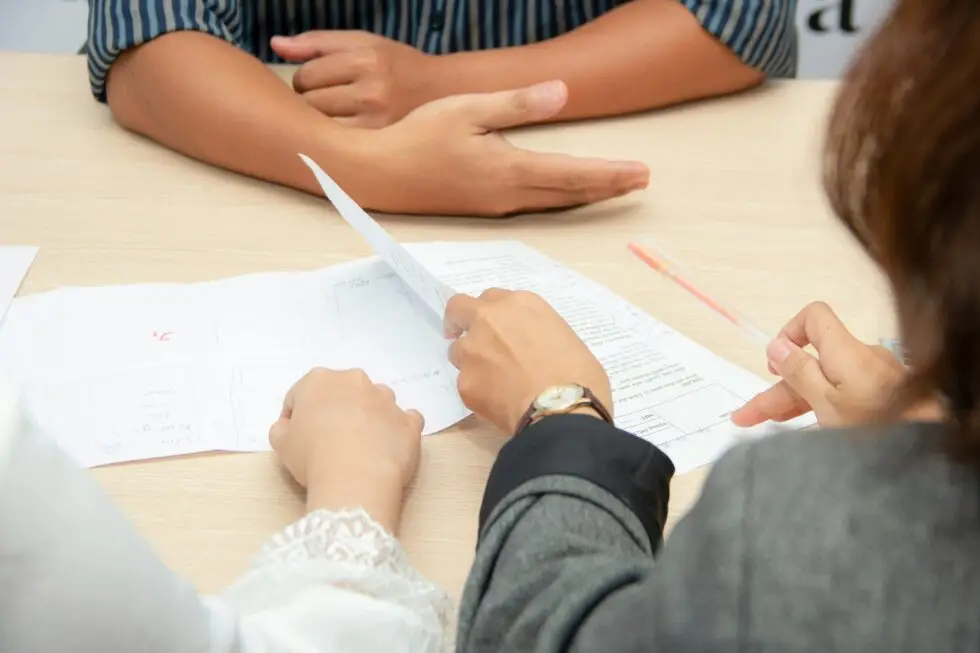Basics of § 16a AufenthG
Section 16a of the Residence Act (AufenthG) provides a legal basis for people from non-EU countries who wish to acquire a professional qualification in Germany. This paragraph aims to meet the demand for skilled workers in Germany and at the same time to offer foreign skilled workers the opportunity for professional development.
Definition and purpose of Section 16a AufenthG
- Legal basis: Section 16a AufenthG allows the granting of a residence permit for the purpose of vocational training and further education.
- Objective: The purpose of the regulation is to make it easier for qualified international workers to enter the German labor market and to improve their career prospects.
- Approval requirement: The approval of the Federal Employment Agency plays a central role, unless international agreements or specific regulations do not require such approval.
Requirements for the residence permit 16a AufenthG
- Purpose of qualified vocational training by the company (Section 16a (1) AufenthG): Approval from the Federal Employment Agency is required unless international or local regulations override this requirement. A residence permit pursuant to Section 16a may not be issued for employment that falls under Section 19c (1) in conjunction with a provision of the Employment Ordinance for temporary employment.
- Purpose of school-based vocational training (16a para. 2 AufenthG): The course of education must lead to a state-recognized vocational qualification and should not be predominantly aimed at nationals of a particular country.
- Language skills and additional qualifications: For qualified vocational training, sufficient German language skills must be demonstrated if these have not already been tested by the educational institution or are to be acquired through preparatory courses.

The application process for § 16a AufenthG
Applying for a residence permit in accordance with Section 16a of the Residence Act (AufenthG) can be a challenge for many applicants, particularly due to the large number of documents required and the strict requirements.
Step-by-step instructions on how to apply
To make the process transparent and easy to understand, we offer you a detailed step-by-step guide to help you meet all the necessary requirements and maximize your chances of a successful application:
- Check the requirements: Make sure that you meet all the criteria for in-company or school-based vocational training.
- Collect the required documents: Prepare all required documents according to the requirements for the type of training in question.
- Submission to the relevant immigration office: Submit your application to the Foreigners' office of your place of residence.
- Waiting for the approval of the Federal Employment Agency: This approval is necessary if no exception is made by intergovernmental agreements or the Employment Ordinance.
- Issuing the residence permit: The residence permit is issued after all documents and approvals have been positively checked.
Required documents and approvals
Various documents are required to successfully apply for a residence permit in accordance with § 16a AufenthG, which may vary depending on the type of training.
Here is a compilation of the documents required for in-company and school-based training:
For the purpose of residence of qualified vocational training (§ 16a para. 1):
- Photo page of valid passport or identity document
- Previous Residence permit with supplementary sheet
- Power of attorney, custody declaration, guardian's identity card (if guardian exists).
- Fictitious certificate, visa with supplementary sheet, Residence permit of another country, Tolerance permit, permit (if available).
- Sample payslip or payslips for the last three months (if you have already started a job)
- Certificate of employment
- Training contract with indication of gross salary
- Declaration on the employment relationship
- Proof of sufficient health insurance cover
- Proof of German language proficiency B1 or confirmation from the training company
- Confirmation of termination of previous training (if applicable).
For the residence permit for the purpose of school-based vocational training (Section 16a (2)):
- Photo page of valid passport or identity document
- Previous right of residence
- Power of attorney, custody declaration, guardian's certificate
- Further documents such as fiction certificate, visa with supplementary sheet, Residence permit of another country, Tolerance permit, permit
- Proof of livelihood
- Confirmation of school attendance
- Proof of sufficient health insurance cover
- Proof of German language skills B1
Both 16a para. 1 and 16a para. 2 apply: You can work 20 hours a week in addition to your training!
Change of training and revocation
According to § 16a Para. 4 AufenthG, your residence permit can be revoked, withdrawn or shortened in accordance with § 7 Para. 2 Sentence 2 AufenthG for reasons for which you are not responsible, such as the insolvency of your training company or a ban as a training company. For this situation you will be given a period of 6 months to look for a new training place.

Transition to the Settlement permit
The transition from a residence permit to an Settlement permit is an important step for foreign skilled workers who wish to live and work in Germany permanently. After completing qualified vocational training under § 16a AufenthG, the requirements for a Settlement permit may become relevant. .
Criteria for the Settlement permit
The issue of a Settlement permit in accordance with Section 9 (2) AufenthG is subject to the following conditions:
- Duration of residence: At least five years possession of a residence permit.
- Securing your livelihood: Proof of a secure income without recourse to public funds.
- Pension insurance contributions: At least 60 months of compulsory or voluntary contributions to statutory pension insurance.
- Public safety: No serious violations of public safety or order.
- Employment permit: Existence of a permit for employment if the applicant is an employee.
- Permits for gainful employment: Availability of all necessary permits for the permanent exercise of gainful employment.
- Language skills: Proof of sufficient German language skills (at least B1).
- Regional studies: Proof of basic knowledge of the legal and social order through the naturalization test.
- Housing: Availability of sufficient housing for the applicant and his/her family.
Change of residence permit after training
After successfully completing their training and meeting the above criteria, trainees can change their Residence permit and apply for a Settlement permit .
Here are some practical tips for this transition:
- Early preparation: Start preparing for the requirements for Settlement permit at an early stage.
- Documentation: Collect all relevant documents and evidence required for the application.
- Advice: Use the advice services offered by Foreigners' office or by specialized migration advice centers.
- Integration: Continue to engage in language courses and integration measures to improve your chances of a successful application.
Naturalization blocked for § 16a AufenthG
The step from § 16a AufenthG to Settlement permit is decisive for you, especially for the later Naturalization and obtaining German citizenship. You cannot be naturalized under § 10 StAG with § 16a AufenthG. Your Residence permit is blocked for Naturalization . You must therefore switch to a right of residence that is possible for Naturalization . The best choice for you is the permanent right of residence - Settlement permit. Alternatively, you can also switch to Sec . 18g AufenthG.

Financial aspects of the residence permit
Financial security is a decisive factor in obtaining and maintaining a residence permit in Germany. Especially in the context of Section 16a AufenthG, which offers foreigners the opportunity to complete vocational training or further education in Germany, the rules for securing a livelihood and the receipt of social benefits such as the citizen's allowance are of particular importance.
Role of citizen's money
The citizen's allowance, which serves as basic security for jobseekers in Germany, also plays an important role for foreigners, especially when it comes to making ends meet financially during the training period.
Holders of a residence permit in accordance with Section 16a (1) can generally receive a citizen's allowance, which can help them to secure their livelihood. This contributes to the stability of the residence status by ensuring financial independence from public funds.
Securing your livelihood with § 16a AufenthG
Securing a livelihood is a basic requirement for the granting of both a residence permit and the Settlement permit.
However, the situation is different for holders of a residence permit in accordance with Section 16a (2) AufenthG who are completing a school education:
- BAföG funding: If the training is eligible for funding under BAföG, the trainees are excluded from the regular benefits for living expenses under SGB II in accordance with § 7 Para. 5 SGB II. However, they are entitled to special benefits in accordance with § 27 SGB II, which are tailored to trainees and offer support without jeopardizing their residence status.
- Requirements for securing a livelihood: Irrespective of eligibility for funding under BAföG, all applicants must prove that their livelihood is secured without recourse to public funds in order to obtain a residence permit and later be able to transfer to Settlement permit .
For both groups, it is essential to find out about the respective eligibility requirements and possible support at an early stage in order to secure the financing of the stay and ensure the success of the residence and integration process in Germany.

Family reunification with right of residence § 16a AufenthG
The reunification of families is an important aspect of German residence law, and this also applies to the residence permit for vocational training in accordance with § 16a AufenthG. Family members of trainees who wish to live in Germany must meet certain requirements, including the duration of the trainee's stay and the age of the family members.
Possibilities and requirements for family reunification
Family reunification with a trainee who has a residence permit in accordance with § 16a AufenthG is possible under certain conditions.
The main criteria and steps for successful family reunification in accordance with Section 27 AufenthG are listed here:
- Eligible family members: spouses, same-sex partners and children of the trainee.
- Duration of residence of the trainee: The main reference person must have resided in Germany for at least two years, or the marriage should have existed before the residence permit was issued. In addition, there must be an expected duration of residence of more than one year.
- Age requirement: Spouses or same-sex partners must generally be at least 18 years old.
- Language skills: Basic German language skills (level A1 of the CEFR) are required, unless the main caregiver is a national of certain countries such as the USA or Canada.
Legalization of documents: Non-EU issued documents must be verified by a legalization or Hague Apostille.
The correct fulfillment of these requirements is essential for the granting of family reunification and enables family members to live in Germany legally and with a good basis.
The procedure for family reunification is as follows:
- Visa for family reunification: As a rule, entry to Germany must be accompanied by an appropriate visa. There are exceptions for citizens of some countries who can enter Germany without a visa.
- Registration procedure: After entering the country, family members must register their residence in Germany and apply for a residence permit within the validity of the visa or within 90 days.
- Gainful employment: The residence permit for family reunification generally entitles the holder to take up gainful employment, either as an employee or as a self-employed person.
Frequent difficulties with Section 16a and how to avoid them
The residence permit according to § 16a AufenthG offers non-EU citizens the opportunity to complete vocational training in Germany. Despite the advantages of this residence permit, there are often challenges and misunderstandings that can complicate the application process. These include a lack of language skills or legal knowledge and incomplete documents.
Typical problems and solutions
Certain difficulties often arise in the context of § 16a AufenthG. Here are some of the common problems and useful solutions for you:
Incomplete or incorrect documents: Missing or incorrectly completed documents often lead to the delay or rejection of applications.
Solution: Make sure that all required documents are complete and correct. Use checklists and consulting services to avoid mistakes.
Difficulties in understanding the language requirements: Many applicants are not aware that sufficient German language skills must be demonstrated.
Solution: Find out about the language requirements at an early stage and, if necessary, attend German courses to reach the required level.
Deadlines not met: Meeting deadlines is crucial, especially when it comes to renewing residence permits.
Solution: Make a note of all important deadlines in your calendar and submit applications in good time, ideally several weeks before the current title expires.
Lack of understanding of the legal requirements for family reunification: misunderstandings regarding the conditions under which family members can join them in Germany.
Solution: Read the legal provisions carefully or seek advice from a specialist lawyer for migration law to ensure that you meet all requirements.
Problems securing a livelihood: Some trainees are unsure how they can secure their livelihood without state assistance.
Solution: Enquire about scholarships, support from training companies or part-time work opportunities that are compatible with your training status.

With Settlement permit you can live in Germany forever and you will never have to extend your stay again. In this comprehensive article, we explain everything you need to know about Settlement permit . We will show you what advantages you have with the settlement...
Conclusion on the right of residence for vocational training and continuing professional development
Using Section 16a of the Residence Act to obtain a Settlement permit is an important step for skilled workers from non-EU countries to gain a foothold in Germany and stay here long-term. To be successful, it is important to carefully prepare all the necessary documents, meet the language requirements and adhere to the deadlines.
It is advisable for you to obtain detailed information about all legal requirements and to make use of available advice services. Active participation in integration and language courses can also help you to integrate better in Germany and increase your chances of permanent residence. Take advantage of the opportunities offered by the Residence Act and actively work towards your professional and social integration in Germany!
FAQ - The most important questions about § 16a AufenthG
§ Section 16a of the Residence Act (AufenthG) provides a legal basis for people from non-EU countries to acquire a professional qualification in Germany. This regulation enables qualified international workers to obtain a residence permit for the purpose of in-company or school-based training and further education.
The requirements for a residence permit according to § 16a AufenthG include:
- Approval of the Federal Employment Agency for in-company training, unless international or sectoral regulations prevent this.
- The course of school-based training must lead to a state-recognized vocational qualification and should not be primarily intended for nationals of a particular country.
- Proof of sufficient German language skills, unless these have been tested in preparatory courses or by the educational institution itself.
Family reunification under § 16a AufenthG is possible for spouses, same-sex partners and children of the trainee. The requirements for this are
- The trainee must have resided legally in Germany for at least two years or the marriage/partnership already existed when the residence permit was issued.
- The family member must have basic German language skills (A1 level), unless he or she is a citizen of certain countries such as the USA or Canada.
- As a rule, you must enter the country with a family reunification visa.
An Settlement permit can be applied for after five years of legal residence with a residence permit in accordance with § 16a AufenthG if:
- The livelihood is secured.
- At least 60 months of contributions to the statutory pension insurance have been paid.
- There are no serious violations of public safety or order.
- Sufficient knowledge of the German language and the legal and social order can be demonstrated.
- Sufficient living space is available.
No. With a residence permit in accordance with Section 16a AufenthG, Naturalization is not directly possible. A change to a permanent residence permit, such as Settlement permit, is required for Naturalization , as Section 16a AufenthG applies specifically to training and does not provide a direct basis for Naturalization .
Holders of a residence permit in accordance with Section 16a (1) AufenthG can generally receive a citizen's allowance to cover their living expenses. This is particularly relevant if no other means of subsistence are available.
For some trainees under Section 16a (2) (school-based training) whose training is eligible for support under BAföG, special regulations apply and they are excluded from regular SGB II benefits, but can receive special support under Section 27 SGB II.






